“… This remilitarization of Japan is supported by Washington, which has already switched sides by supporting Ukraine. …”
Faced with the progress made by the advocates of a multipolar world, the defenders of the “American imperialist” have not been slow to react. Two operations will be analyzed here: the transformation of the European Common Market into a military structure and the reformation of the World War II Axis. This second aspect brings a new actor into play: Japan.
The change in the European Union
In 1949, the United States and the United Kingdom created the North Atlantic Treaty Organization (NATO). They included Canada and the states they had liberated in Western Europe. For them, it was not a question of defending themselves, but of preparing an attack on the Soviet Union. The Soviet Union responded by creating the Warsaw Pact.
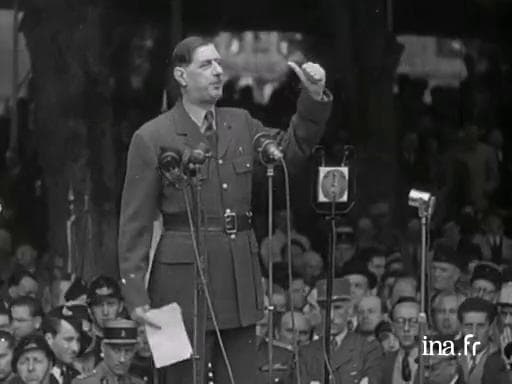
In 1950, when the Korean War began, the United States planned to extend the conflict to the German Democratic Republic (known as “East Germany”). In order to do this, they had to rearm the Federal Republic of Germany (known as “West Germany”) despite the opposition of France, Belgium and Luxembourg. They therefore proposed the creation of a European Defence Community (EDC), but failed in the face of resistance from the Gaullists and the French Communists.
At the same time, they helped rebuild Western Europe with the Marshall Plan. This plan included many secret clauses, including the construction of a European common market. Washington wanted to dominate Western Europe economically and preserve it politically from communist influence and Soviet imperialism. The European Economic Communities – and later the European Union – form the civilian side of the US token, whose military side is NATO.
The European Commission is not an administration of the heads of state and government of the Union, but the interface between them and the Atlantic Alliance. The European standards for not only armaments and construction, but also for equipment, clothing and food, etc., are established by the Nato services, first in Luxembourg, then in Belgium. They are transmitted to the Commission, and today approved by the European Parliament.
In 1989, as the Soviet Union was collapsing in on itself, the French President, François Mitterrand, and the German Chancellor, Helmut Köhl, imagined freeing Western Europe from American tutelage so as to be able to compete with Washington. Negotiations on this treaty took place at the same time as the end of the quadripartite occupation of Germany (12 September 1990), the reunification of the two Germanies (3 October 1990) and the dissolution of the Warsaw Pact (1 July 1991). Washington accepted the Maastricht Treaty as long as it recognized their military domination. Western Europeans accepted this principle.
However, Washington distrusted the Mitterrand-Köhl couple and demanded at the last moment that the European Union include all the former members of the Warsaw Pact, and even the new independent states, which had emerged from the former Soviet Union. These states did not share the aspirations of the Maastricht negotiators. In fact, they are rather suspicious of them. They want to free themselves from both German and Russian influence. They rely on the “American umbrella” for their defence.
In 2003, Washington took advantage of the Spanish presidency of the EU (the socialist Felipe González) and of the High Representative for the Common Foreign and Security Policy, Javier Solana, to have the “European Security Strategy” adopted, modelled on the National Security Strategy of US President George W. Bush. High Representative Federica Mogherini revised this document in 2016.
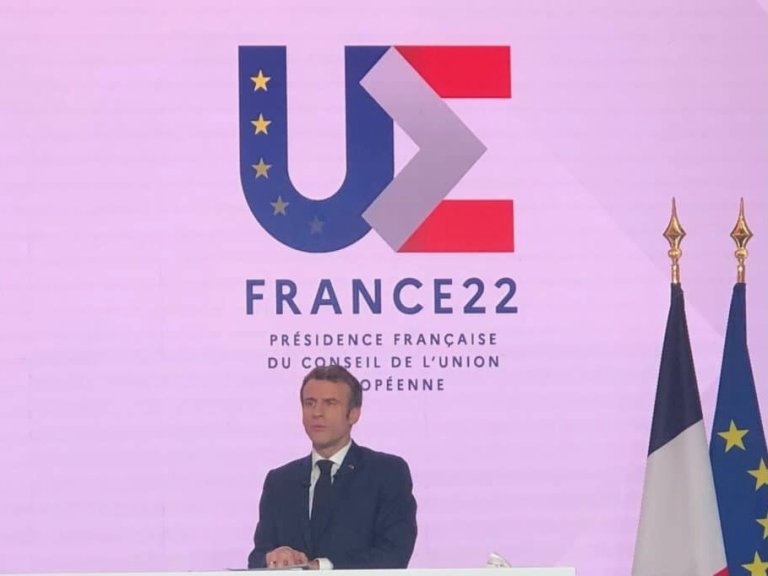
In 2022, during the war in Ukraine, the United States, as in the Korean War, once again felt the need to rearm Germany against Russia (successor to the USSR). So they are transforming the EU, carefully this time. During the presidency of the Frenchman Emmanuel Macron, they proposed a “Strategic Compass”. This was adopted only one month after the Russian intervention in Ukraine. The members of the European Union are all the more stunned because they still do not know precisely whether they are together to cooperate or to integrate (the “constructive ambiguity”, as Henry Kissinger put it).
In March 2023, the current High Representative of the European Union for Foreign Affairs and Security Policy, Josep Borrell, organized the first “Robert Schumann Forum on Security and Defence”. A large number of defense and foreign ministers from the EU member states are participating. In addition to the non-EU European states that are pro-US, many others are represented at ministerial level, such as Angola, Ghana, Mozambique, Niger, Nigeria, Rwanda, Senegal, Somalia, Egypt, Chile, Peru, Georgia, Indonesia and Japan. In addition to NATO, ASEAN, the Gulf Cooperation Council and the African Union are also represented. Above all, the Arab League is sending its Secretary General.
The explicit aim of this Forum is to defend “multilateralism and a rules-based international order”; an elegant way of denouncing the Russian-Chinese project of a “multipolar world based on international law”.
With the Covid epidemic, the European Union has already invested itself with powers in the field of health that were not foreseen by the Treaties. I explained at the beginning of this epidemic that the measure of confinement of healthy people had no precedent in history. It was devised at the request of the former head of Gilead Sciences and former Secretary of Defense, Donald Rumsfeld, by Dr. Richard Hatchett, who became the director of CEPI (Coalition for Epidemic Preparedness Innovations) and, as such, the initiator of this measure worldwide [1].
According to his classified report of 2005, which we unfortunately only know from the reactions it provoked, the confinement of healthy civilians to their homes was supposed to allow the identification of jobs that could be relocated, to close down the consumer goods industries in the West and to concentrate the work force in the defense industry. We are not there yet, but the European Union, having seized public health powers not foreseen by the Treaties, without raising any indignation, is now interpreting the texts to become a military power.
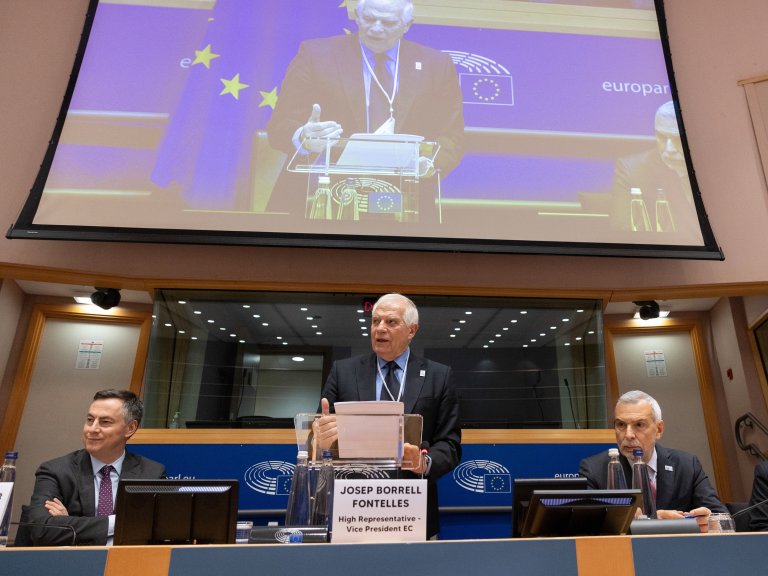
Last week, during the Schuman Forum, Josep Borrell presented his first report on the implementation of the “Strategic Compass”. The idea is to coordinate the pooling of national armies, including intelligence services, in a spirit of integration rather than cooperation. Emmanuel Macron’s project now buries that of Charles De Gaulle and the French Communists.
The “Europe of Defence” now appears to be a slogan aimed at placing not only the operational forces of the EU member states under the authority of the Supreme Allied Commander Europe (SACEUR), now the US General Christopher G. Cavoli, but also at taking control of all the financing decisions that were previously the responsibility of the national parliaments, and even of the decisions on armaments and organization that were the responsibility of the member states’ executive bodies. Thus, the Union is organizing a common army without knowing who will command it.
The reconstitution of the Nazi-Nippon Axis
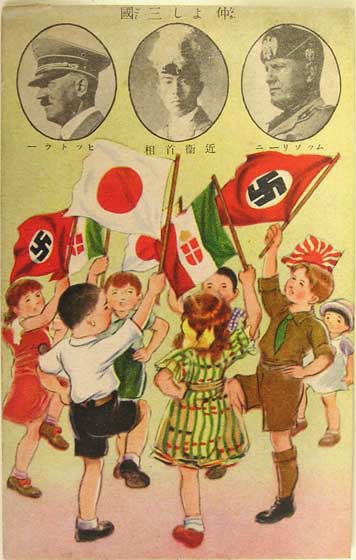
When we think of the Second World War, in Europe we think of 1939 and 1945. This is absolutely wrong. The war started in 1931 after Japanese generals attacked Chinese soldiers in Manchuria. This was the first overreach of Japanese civilian power by the militarist faction, which was amplified a few months later with the assassination of the civilian Prime Minister by a group of military men. In a few years, Japan was transformed into a militaristic and expansionist power. This war did not end with the liberation of Manchuria by the Red Army in 1945.
In fact, the United States used two atomic bombs to prevent Japan’s surrender to the USSR and to ensure that it would only take place before its own generals. They continued to fight until 1946 because many Japanese refused to surrender to the United States who had not fought much in the Pacific until then. The Second World War lasted from 1931 to 1946. If we make these date errors, it is because it only became globalized with the Rome-Berlin-Tokyo Axis (the “Tripartite Pact”), which Hungary, Slovakia, Bulgaria and Romania soon joined.
The foundation of the Axis was not the disparate interests of its members, but their cult of strength. To reform it today, we must unite those who share this cult.
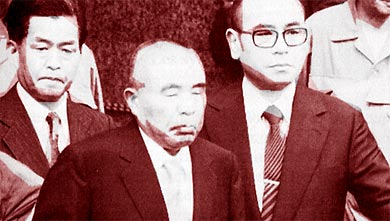
When the U.S. occupied Japan in 1946, the first thought was to purge all militaristic elements from the country. But when the Korean War broke out, the U.S. decided to use Japan to fight communism. They ended the ongoing trials and rehabilitated 55,000 high officials. They implemented the Dodge Plan, the equivalent of the Marshall Plan in Europe. One of the lucky beneficiaries of this policy change was Hayato Ikeda, who became Prime Minister and restored the country’s economy.
With the help of the CIA, he founded the Liberal Democratic Party. It is from this party that Prime Minister Shinzo Abe (2012-20) and his successor Fumio Kishida (2020-) were born.
The latter has just made a surprise visit to Ukraine. He is the first Asian head of government to visit this country since the beginning of the war. He visited a mass grave in Bucha and expressed his condolences to the families of the victims of “Russian abuses”. Most analysts interpret the trip as preparation for the upcoming G7 summit in Japan. Unless it goes much further.
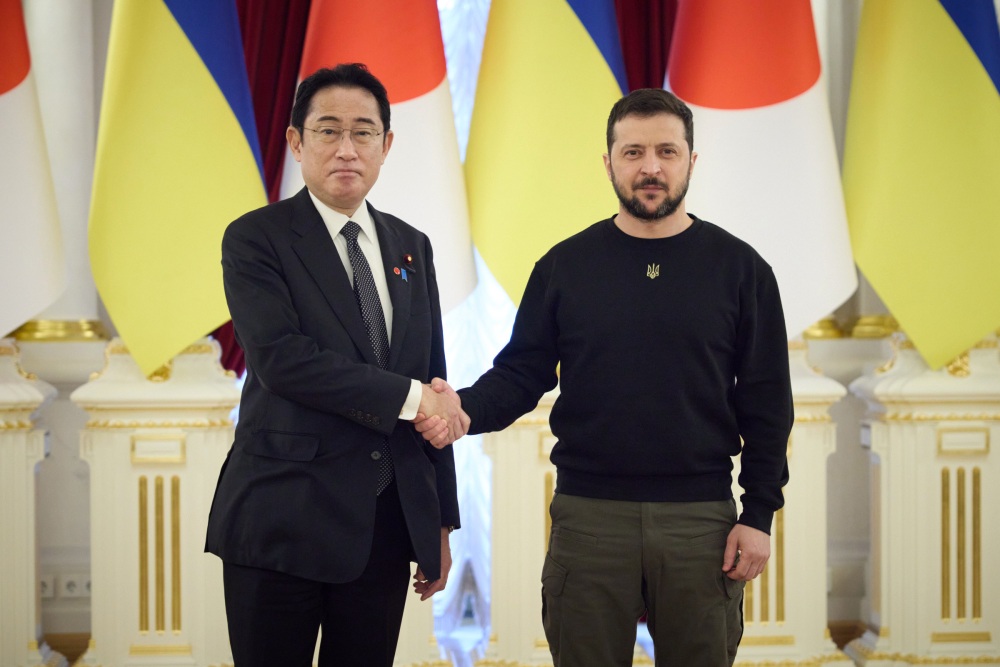
In their final communiqué, Fumio Kishida and Volodymyr Zelensky emphasize “the inseparability of Euro-Atlantic and Indo-Pacific security” and “the importance of peace and stability across the Taiwan Strait. For them, it is not only a matter of defending Ukraine from Russia, but also Japan from China. This communiqué lays the foundation for a new alliance between the successors of the Nazis that are the Ukrainian “integral nationalists” [2] and the successors of Shōwa nationalism.
Today’s Ukraine is the only state in the world with an explicitly racist constitution. Adopted in 1996 and revised in 2020, it states in Article 16 that “Preserving the genetic heritage of the Ukrainian people is the responsibility of the state.” The widow of the Ukrainian Nazi Prime Minister, Yaroslav Stetsko, wrote this article.
In contrast, the Japanese Constitution renounces war in its Article 9. But Shinzo Abe and Fumio Kishida have initiated a fight to repeal this provision. Among other things, it makes it impossible to transfer lethal defense equipment, so Mr. Kishima offered about $7.1 billion in humanitarian and financial aid to Kyiv. As for non-lethal military equipment, this week he could only announce the shipment of a stockpile worth $30 million.
This remilitarization of Japan is supported by Washington, which has already switched sides by supporting Ukraine. U.S. Ambassador to Tokyo Rahm Emmanuel tweeted, “Prime Minister Kishida is making a historic visit to Ukraine to protect the Ukrainian people and promote the universal values enshrined in the UN Charter…About 900 kilometers away, a different and more nefarious partnership is taking shape in Moscow,” (referring to the Putin-Xi summit).
For his part, the Chinese Foreign Ministry spokesman, Wang Weibin, said on the contrary, regarding the Prime Minister’s trip that he “hopes that Japan will press for an appeasement of the situation, not the other way around. For its part, Russia sent two strategic bombers over the Sea of Japan for about seven hours.
By Thierry Meyssan
Published by Voltaire Network
Republished by The 21st Century
The views expressed in this article are solely those of the author and do not necessarily reflect the opinions of 21cir.com.
